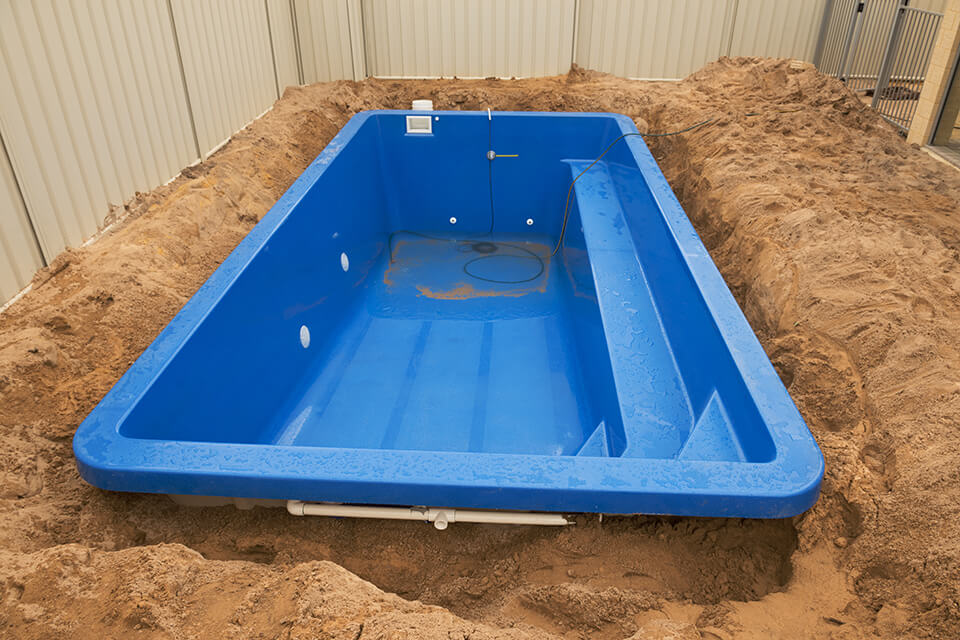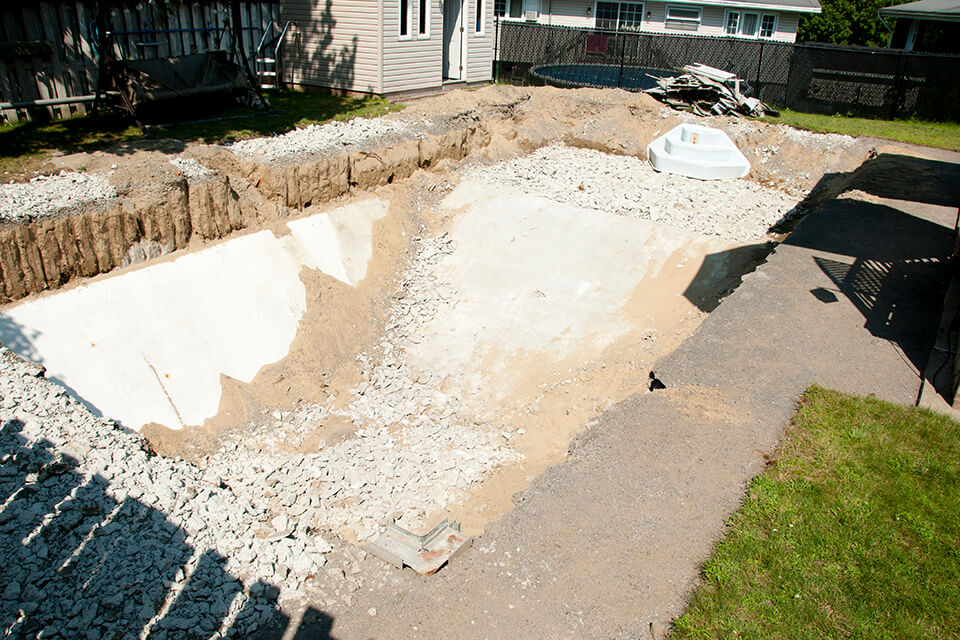So you’re getting an inground pool or swim spa, but you’re wondering if you could save some money by excavating it yourself. After all, digging is digging; how hard can it be, right? This article goes over some things to consider when doing your pool excavation.
Size of the Pool Matters
The basic principle of excavating is usually the same, but the size of the pool makes all the difference, especially the depth. The deeper you dig, the more hazardous it becomes, and the more complications you may run into, such as hard soil, large boulders, or tree roots. Occasionally, even if you called before you dig, the utility lines may not be where they are marked. In addition to size, shape matters, too. A more complex shape may take longer, and if your pool is sloped and has a hopper at the bottom, you need to be more precise when grading. Remember that you always have to dig wider, longer, and deeper than the actual dimension of the pool to accommodate the base, backfilling, and accessories such as plumbing and electrical.
Pool Manufacturer Warranty
If you’re excavating for a pre-made pool, the manufacturer may void the warranty if the pool isn’t professionally excavated and installed. And rightly so because precise specs need to be followed to ensure a proper installation. If not done right, the base and the walls may not be stable enough.

Excavating a Pool is Only Half the Battle
After the pool is installed and ready to fill with water, the space around the pool needs to be backfilled. The larger the pool, the more backfilling material is required, and only a portion of the soil dug out can be used for backfilling. This means you will need to deal with what you end up digging out, whether to repurpose the soil on your property or have it hauled away.

Is Excavating Your Own Pool Worth it?
An experienced operator can dig out an average pool in a day or two, but digging the same hole with a shovel would take weeks. So if you don’t know how to operate excavating equipment and will be digging by hand, you probably don’t want to DIY anything larger than a small swim spa or plunge pool. While it’s possible to rent your excavator or skid steer, an excavating contractor will be able to do it more efficiently and precisely unless you’re already proficient with the machines and have dug pools before. Excavating is a noisy and dusty job; getting it done sooner means you’re less likely to annoy your neighbours.
Lastly, the cost of excavation is relatively minor compared with the pool’s overall cost, especially if a fancier pool is to be installed. So you have to decide whether it is worth your time, effort, stress, and most importantly, the risk associated with doing it yourself.
